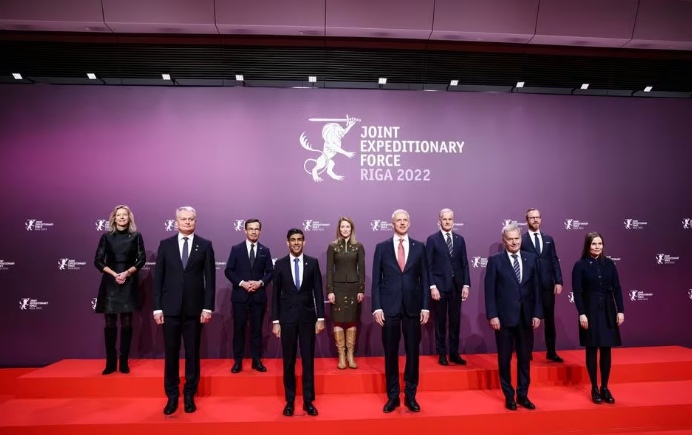Ten Nordic countries agreed on Tuesday to boost naval presence in the Baltic Sea to protect critical infrastructure after a gas pipeline leak.
The defence ministers of the 10 countries that make up the Joint Expeditionary Force (JEF) agreed at the meeting to activate the “JEF response Option”. They said in a joint declaration:
“This includes Maritime and Air capabilities which will deploy across the JEF’s core region as a military contribution to the protection of critical undersea infrastructure. This marks the first time a JEF Response Option has been activated. The activity will take place in early December.”
In October, leaders of the group’s member countries agreed to strengthen measures to protect subsea infrastructure after a leak on a pipeline linking Finland and Estonia was believed to have been caused by “external” activities.
Finnish police believe the anchor of a Chinese vessel damaged the pipeline. Swedish Minister for Defence Pal Jonson told public broadcaster SVT:
“It is about conducting maritime surveillance, some 20 warships will be active in the Baltic Sea but also in parts of the North Atlantic to take into account the security situation and better protect critical underwater infrastructure.”
In September 2022, a series of underwater explosions damaged the Nord Stream 1 and Nord Stream 2 pipelines, which carry natural gas from Russia to Western Europe, at a time of high geopolitical tensions as Moscow cut gas supplies to Europe.
JEF is a coalition of 10 states concerned with security issues in Northern Europe, including the Netherlands, Estonia, Denmark, Britain, Finland, Lithuania, Iceland, Norway, Latvia and Sweden.
